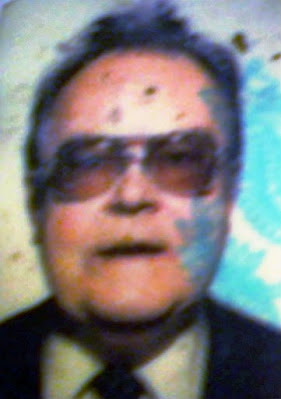In 1972 Don MacLean's American Pie was the number 2 song on the hit parade. At the time I remember trying to decipher it, and like most who made the effort, we clearly recognized Dylan, The Beatles and the Rolling Stones as the main characters. What I did NOT realize is WHY these three were highlighted in the song. And I am guessing that you might not realize it as well.
For most Dylan fans, and all who are part of the Dylan circles here in Duluth, it is well known that Buddy Holly was a primary influence on the young Hibbing teen who came down on a freezing cold mid-winter night to see this singer-songwriter and cohorts. Bob Dylan references the event several times in later life. "He stood six feet away"... or three feet away depending on the account. Something passed between them, he's said.
If you come to Duluth and I will show you where he stood, right up tight against the stage, according to his pal Louis Kemp.
That the Beatles and the Stones were primary influences on a generation of 60's youth is well known. But were you aware that both these supergroups saw Buddy Holly as a primary influence. Primary.
The Beatles performed as many as 40 of Buddy Holly's songs in the beginning. Even before becoming The Beatles, when John had his band The Quarrymen they were learning Buddy Holly songs. In 1962, long before The British Invasion, The Beatles recorded one of Holly's songs and eventually had as many as 40 Holly songs in their performance repertoire. In a letter to a fan John wrote, "Why do you think we became the Beatles? We were Insects." Buddy Holly's band on the European Tour was called Buddy Holly and the Crickets.
John saw Buddy Holly's horn-rimmed glasses not as geeky but as liberating. John, too had poor eyesight. He was free to leave that unconcealed.
As for the Stones, their Mississipi Delta blues influence is well known. It's what brought Jagger and Richards together. But they were also keen fans of Buddy Holly as well, which is why the first cut on their first album is Buddy Holly's "Not Fade Away."
* * *
So it was that 62 years ago Buddy Holly and the Winter Dance Party rolled into town. Barely three days later Holly, Richie Valens and J.P. Richardson, a.k.a. "The Big Bopper," died in a plane crash, along with pilot Roger Peterson, in an Iowa cornfield.
In recent years I've written stories about these events. As a tribute to Buddy Holly and a remembrance of his having passed this way, here are links to some of those stories.
In Memoriam: Buddy Holly Stood On These Floorboards
A Visit to the Buddy Holly Crash Site
The Winter Dance Party, Dylan and American Pie
* * *
A FEW PHOTOS AND THE MEANING OF AMERICAN PIE
 |
| The Big Bopper, J.P. Richardson |
 |
| Ritchie Valens |
 |
| Buddy Holly R.I.P |
When people ask Don McLean what does American Pie really mean,
he likes to reply: "It means I never have to work again."




































